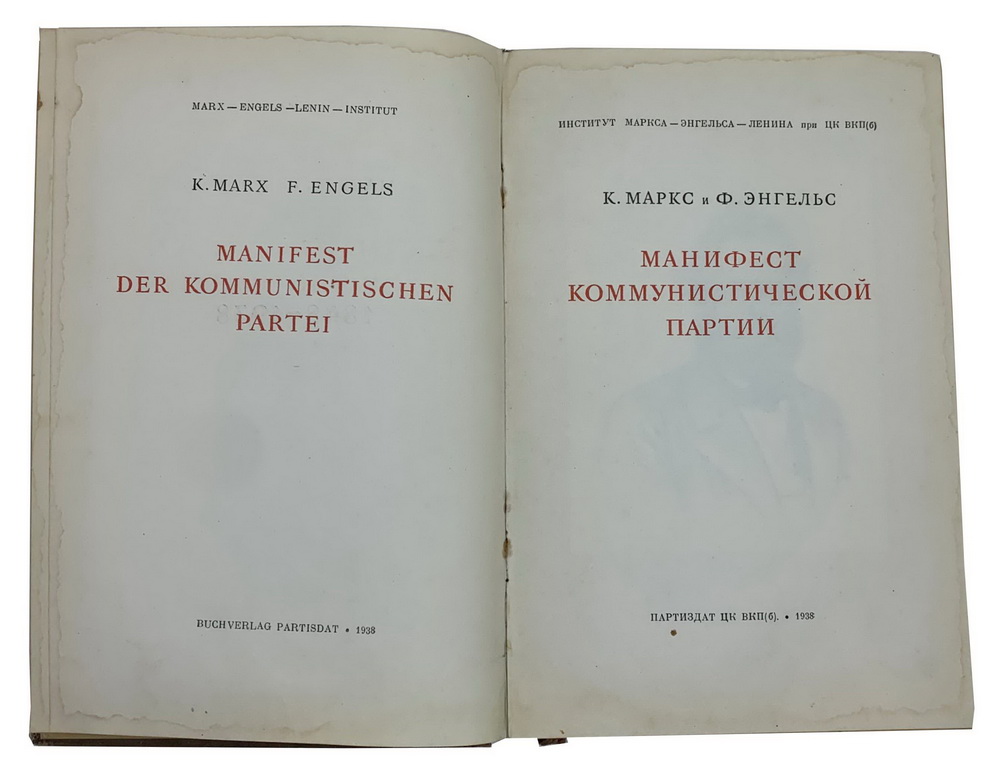Marks K., Engel's F. Manifest Kommunisticheskoj partii. Podgotovitel' Rubinshtejn E. Hud. Pismannik G. Portrety K.Marksa i F.Engel'sa raboty hudozhnika Avvakumova N. Barel'ef avtorov raboty skul'ptora Vasilik N. Institut.1938g.
Marx K., Engels F. Manifesto of the Communist Party. 1938.
Managing editor V.V. Adoratsky. Portraits of K. Marx and F. Engels by the artist N. Avakumov. Bas-relief by sculptor N. Vasilyk. Text in Russian and German M. Partizdat of the Central Committee of the All-Union Communist Party of Bolsheviks, 1938. Vladimir Viktorovich Adoratsky (August 7 (19), 1878, Kazan – June 5, 1945, Moscow) – a member of the Russian revolutionary movement, Soviet historian, Marxist philosopher. Academician of the Academy of Sciences of the USSR (1932), professor (1926), doctor of historical sciences (1934) [3]. In 1931–1939 Director of the Marx-Engels-Lenin Institute, in 1936–1939 also headed the Institute of Philosophy of the Academy of Sciences of the USSR. Adoratsky was one of the first philosophers to praise Stalin as the theoretician of Leninism and the leader of the world proletariat. In December 1929, in connection with the 50th anniversary of Joseph Vissarionovich, leading Marxist philosophers were approached with a proposal to glorify Stalin as a great philosopher – a classic of Marxism. The director of the Institute of Marx and Engels, academician Ryazanov, and the director of the Institute of Philosophy, academician Deborin, refused, but Adoratsky accepted the proposal and appeared in Izvestia with a corresponding article. This step predetermined his subsequent rise and status as the formal head of Soviet philosophy. In 1936, he headed the commission for the acquisition of the archive of Marx and Engels. The Manifesto of the Communist Party (German Manifest der Kommunistischen Partei) is the work of Karl Marx and Friedrich Engels, in which the authors declare and justify the goals, objectives and methods of struggle of the emerging communist organizations and parties. This important Marxist work states that the entire previous history of mankind is the history of class struggle. The authors proclaim the inevitability of the death of capitalism at the hands of the proletariat, which will have to build a classless communist society with public ownership of the means of production.


